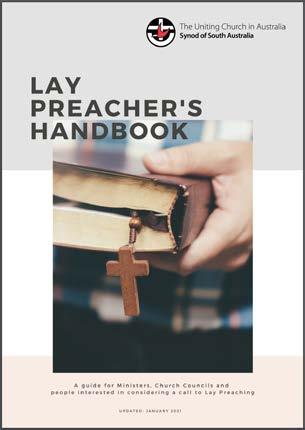
2 minute read
Behaviour of people in the Church
Max Howland
Throughout this edition of New Times the theme focuses on domestic violence; but the sad reality is that there’s another place where people too often use violent and abusive behaviour – the church.
Of course, this is not a new problem. We could probably make the case that Jesus’ behaviour in criticising the religious leaders of his day could also be called a form of abuse.
The Apostle Paul encountered this in the churches when he wrote to a generation after Jesus: • He confronted the abusive and selfish behaviour of the privileged members of the Corinth community even at the
Lord’s Supper (1st Corinthians 11). • To the church in Rome he said,
‘Who gave you the right to stand in judgement over another Christian just because they hold a different opinion to yours? How dare you sneer at another’s belief or practice?’ (Romans 14).
Jesus is recorded as teaching: • Anger is as bad as murder, ogling is as bad as fornication (Matthew 5); following that logic, we could equally add that greed is as bad as theft. • True greatness is found in self-giving, being as humiliated as a slave, as vulnerable as a child. (Mark ch 8-10).
On the other hand, history records that in the plague that ravaged Rome through 164-180 CE, most people fled for their lives (an act of common sense, one would think). The Christians though, stayed behind to care for the sick and bury the dead, often at the cost of their own lives. ‘See how they love one another’ was the response of astounded observers.
The Uniting Church has an assortment of Codes of Practice – for Ministry Practice, for Volunteers, for Lay Preachers.
The Code of Conduct for Church Councils begins with a reminder that a congregation is not just a bundle of ‘shared interest’ people: it is The Church in the place where it is located. It is to be a place where we are members of unity, faith and love, hope, grace, witness and service.
The Code then names the appropriate practices and attitudes: care for the wellbeing of all people, acceptance of and respect for difference, integrity, justice, compassion, respectful use of power.
These are values and behaviours that the UCA enjoins its members to observe – because that is what Jesus modelled and taught. As Paul quoted:
Adopt the attitude that was in Christ Jesus: though he was in the form of God, He did not consider being equal with God something to exploit, but he emptied himself by taking the form of a slave and by becoming like human beings. When he found himself in the form of a human, he humbled himself by becoming obedient to the point of death, even death on a cross. (Phil 2.5f)










